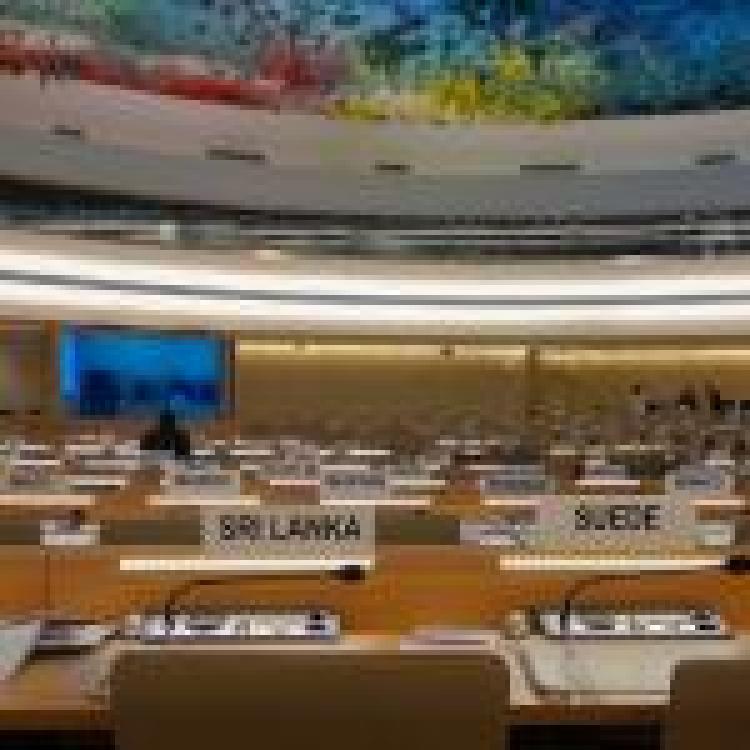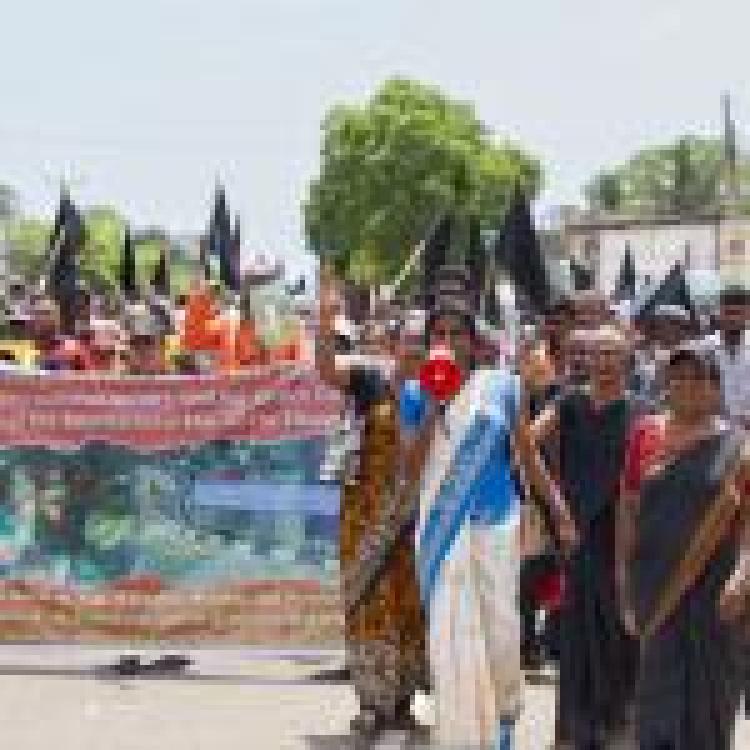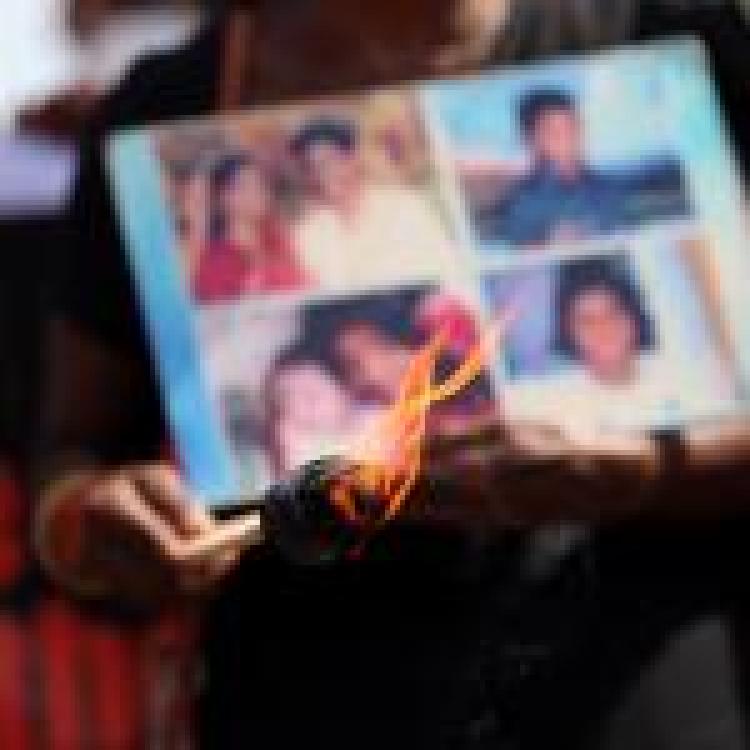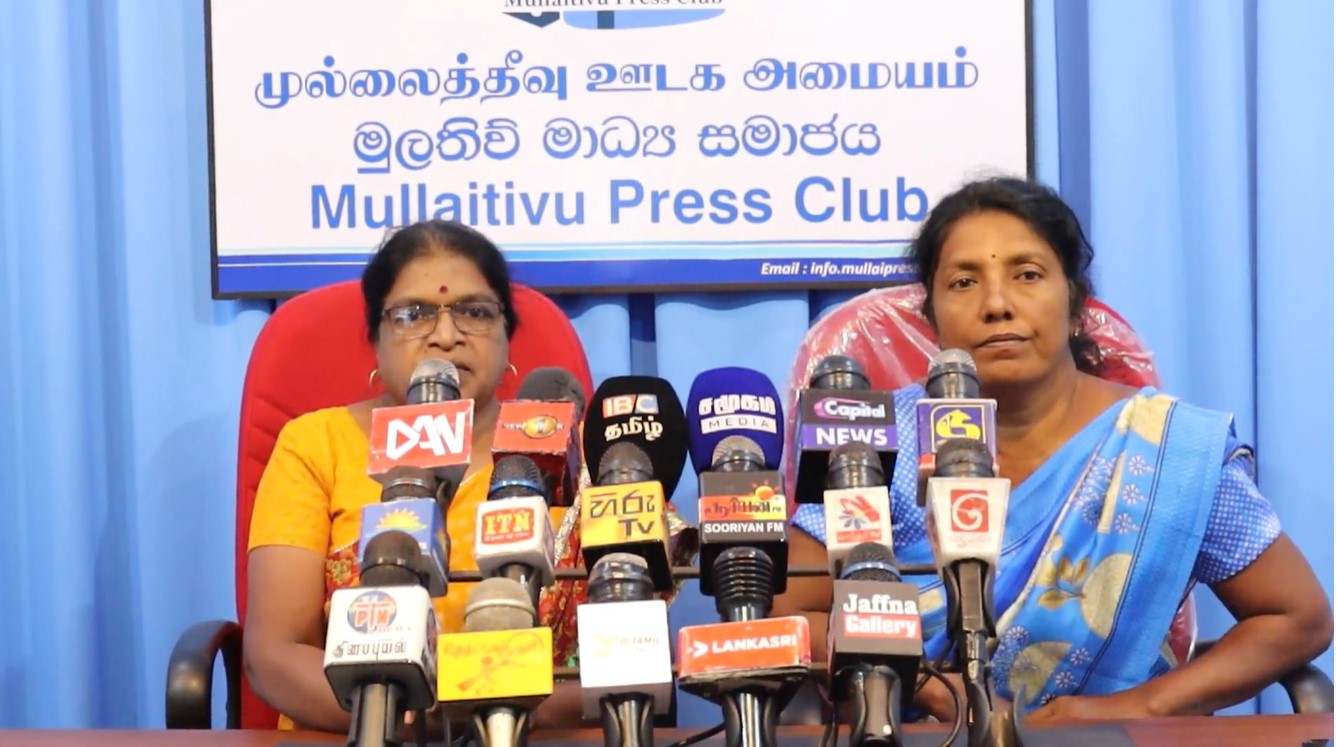
Leaders of the Mullaitivu Association of Relations of Enforced Disappearances condemn Sri Lankan Foreign Affairs Minister Ali Sabry's statements at the 51st session of the United Nations Human Rights Council, in which he rejects international accountability mechanisms citing a need to protect the "sovereignty of the people of Sri Lanka."
At a Mullaitivu press meet yesterday, the association's president, Mariyasuresh Eswari, and secretary, Prabhakaran Ranjana, reiterated their demand for an international investigation and firmly rejected the minister's claim that Sri Lanka can pursue "tangible progress in the protection of human rights and reconcilation through independent domestic institutions."
"On behalf of Relations of Enforced Disappearances, we strongly condemn the statements by the Foreign Affairs Minister. Moving forward, he should not be provided with such platforms. He does not have the right to speak on this issue. If he wants money, he can ask for that. If he wants support for economic development at the UN, he may request that [...] However, he does not have the right to say that he will obtain justice for [us]. Whoever it is, whether it is a minister or political representative, or an organization associated with the Sri Lankan government, we ask that you do not sell us out to protect yourselves," asserted the head of Mullaitivu Association for Relations of Enforced Disappearances, Eswari. to the media.
The statement comes on the 2015th day of ongoing protests by families of the disappeared across the North-East in pursuit of truth and justice. The protestors have been subject to intimidation, and surveillance, by the police and armed forces, to prevent them from peacefully protesting.
Mariyasuresh Eswari was dismayed at the lack of dialogue regarding the issue of forced disappearances at the UNHRC's 51st session, despite the ongoing protests by victims' families.
"The opportunity to speak with the press during this time has come as a result of the commencement of the United Nations Human Rights Council session. There is a need for us to express our pain and sorrows at this time and many expectations [...] it was painful to see that the issue of enforced disappearances and the conditions of political prisoners was missing from the discourse. We have been consistently protesting for an international investigation, sacrificing our lives, not asking for money [...] but for justice. It is clear to the United Nations [...] that we are relying on them [...] We are protesting for human beings, the human race, to recover human lives, to recover our relatives," she said.
Prabhakaran Ranjana expressed a similar sentiment, by stating: "[t]o undermine our protest and because they do not perceive our lives as having any value, Ali Sabry, who works under the Sri Lankan government [...] and who does not care that we are in search of our relations, is saying that a domestic process is sufficient. However, we will never accept that. We want the Sri Lankan government to be prosecuted, to be forced to admit to their crimes. Until we find out what happened to our relations, our protest will continue."
She continues by recalling that the minister did not attend a protest conducted by the Mullaitivu Association of Relations of Enforced Disappearances during his last visit to the region and speaks to the absence of trust between victims' families and the Sri Lankan state:
"[w]e conducted a protest when he last came to Mullaitivu. He did not have the courage to come see the families of victims of enforced disappearances. He did not have the courage to look us in the face but he was able to go to the United Nations and defend domestic mechanisms. The man who ran out through the back door, how is he going to get us any resolve? We do not trust the Sri Lankan government or anyone who works for the Sri Lankan government including ministers. [...] We will continue our protest until a solution is reached through international mechanisms."
Eswari reinforces Ranjana's statement by sharing her anguish and frustration in the Sri Lankan state's neglect to address the suffering of victims' families:
"Despite us being human beings in Sri Lanka, what freedom did they give us? We are fighting for our race and our rights. They stole our land. They are subjecting political prisoners to extreme torture [...] They are the ones who committed the crimes and are telling us that within this criminal cage, that they will get us justice [...] We are not fools to fall for that."
For decades, Sri Lanka has rejected international accountability mechanisms and claimed that domestic mechanisms would provide truth and justice to Tamil victim-survivors. Although Sri Lanka has established multiple domestic mechanisms and commissions to investigate human rights violations, they have failed to produce any tangible results.
Sabry remarked that the Office of Missing Persons (OMP) has begun the "process of inquiry and verification."
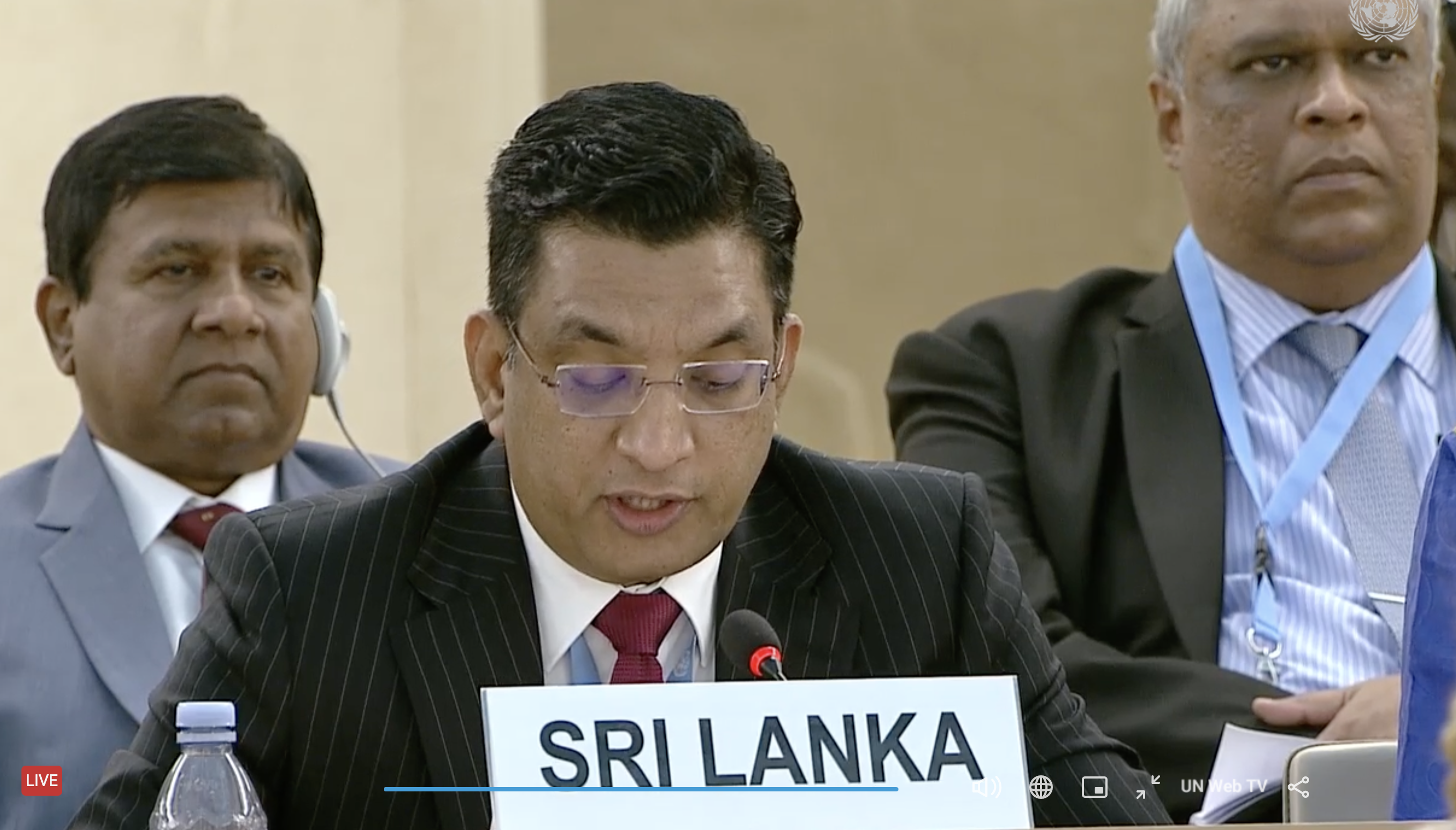
However, since the establishment of the office in 2016, the office has not yet delivered any truth or justice to Tamil victim-survivors. Tamil families of the disappeared have rejected the OMP for lacking independence as well as failing to hold any of the perpetrators to account.
Tamil civil society organisations and activists have also condemned the OMP as a mechanism used by Sri Lanka to "hoodwink" the international community.
Last week, the UN High Commissioner Michelle Bachelet released a scathing report outlining the deepening militarisation, the continued harassment of Tamil victim-survivors, and the deterioration of human rights on the island.
Bachelet's report also noted that “although the purpose of the OMP is to trace and search for the missing, it has not been able to trace a single disappeared person or clarify the fate of the disappeared in meaningful ways, and its current orientation is to expedite the closure of files”.
Eswari pleads with the UNHRC to oversee an international investigation and a genuine pathway towards truth and justice: "[w]e have a demand for the UNHRC commissioner. On the basis of human dignity, we are asking for our rights [...] They must take on the burden of victims of enforced disappearances. They must grant us our rights."


